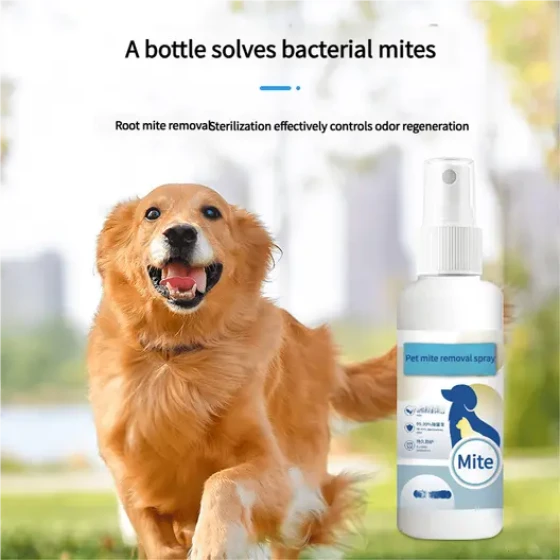How to Prevent Dog Vaccine Failure

Golden Retriever (Detailed Introduction)
The vaccine success rate is very high, but it is not 100% guaranteed. Whether vaccination is successful depends on many factors, such as the administration method, the quality of the vaccine itself, the immunization schedule, and the dog’s physical condition. So, it is not that dogs can be immune simply by being vaccinated; vaccination failure is unavoidable at times, and what we can do is to try our best to prevent it.
Reasons for Vaccination Failure
1. Caused by the Dog’s Own Body
Because there are many dog breeds and there are differences in the individual’s own body, even dogs of the same breed may have different immune responses to the same vaccine. Some dogs even have congenital immune deficiencies, which can lead to vaccination failure.
2. Lack of Nutritional Elements
Both cellular immunity and humoral immunity require certain nutrients. Deficiency or insufficiency of nutrients, especially vitamins A, D, B, E, various trace elements, and complete proteins, will affect the speed or amount of antibody production, causing delayed immune response or decreased immune capability, leading to immune failure.
3. Poor Vaccine Quality
Using vaccines produced by unauthorized biological product manufacturers, vaccines that do not meet weight standards or have poor quality; using expired vaccines; vaccines not stored or transported under low temperature conditions, reducing the vaccine titer; exposure to direct sunlight or excessive time after removal from refrigeration, resulting in decreased vaccine activity; freeze-dried vaccines not diluted with a dedicated diluent, or not used within the specified time after dilution, greatly reducing stability; improper vaccination techniques or inaccurate dosage, all of which can affect vaccine potency and immune effect, even causing immune failure.
4. Not Following the Vaccination Schedule
Vaccination for dogs typically follows a fixed cycle. However, many owners, due to work or other related factors, cause the interval between vaccinations to be too long, resulting in previous vaccines becoming ineffective and leading to vaccination failure.
5. Existing Latent Infection
Many dogs may already be infected with a virus before vaccination, although the disease is still in the latent stage. After vaccination, the dog’s immunity declines for a time, allowing the virus to take advantage of this gap and erupt, causing vaccine failure.

Supplement Nutritional Elements More
How to Deal with Vaccine Failure
1. Enhance Nutritional Management and Ensure Balanced Nutrition
Improve feeding management by mainly using dog food as the staple diet, pay attention to protein nutrition supply, supplement vitamins A, B, C, D, E and various trace elements as needed, reduce various stress factors, carry out reasonable deworming, properly handle vaccination to prevent the dog from being frightened, strengthen physical fitness, and improve the dog's resistance and immunity to disease.
2. Rational Use of Medication
Select drugs scientifically and reasonably according to the nature and symptoms of the disease and its severity, avoiding misuse and abuse of drugs. Do not use disinfectants, antibiotics, anticoccidials, and antiviral drugs within a few days before and after vaccination. Choose immunostimulants such as levamisole, BCG vaccine, interferon properly to enhance immune effects. Use glucocorticoids, cytotoxic drugs, and sex hormones cautiously to avoid harming immune organs and cells, thereby affecting immune response.
3. Follow Correct Immunization Procedures
Vaccinate at the appropriate times according to the dog's age, and do not delay too long even if there are difficulties, otherwise, vaccine failure is likely.
4. Use Standard Immunization Products
Strictly follow the vaccination routes recommended by vaccine manufacturers and use correct vaccination methods, use the diluent provided for the vaccine, prepare the vaccine correctly, ensure the vaccine is properly administered and in the correct dose, to guarantee immunization effect.
Although we cannot completely avoid vaccination failure, we can minimize its occurrence by paying close attention to the precautions and avoiding errors during immunization.





